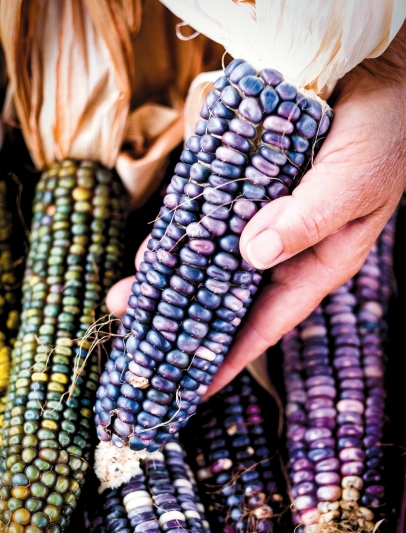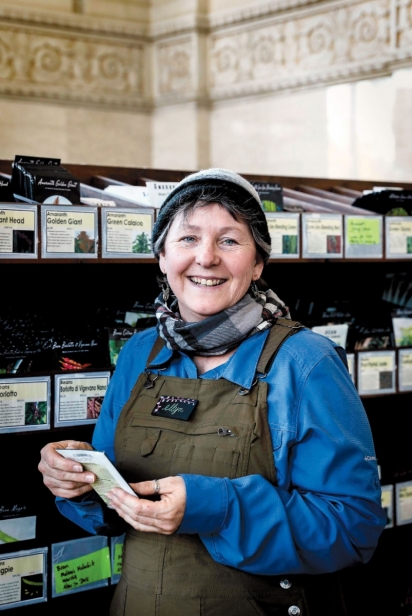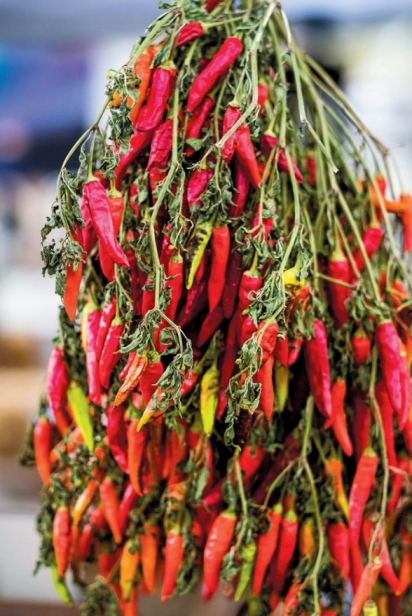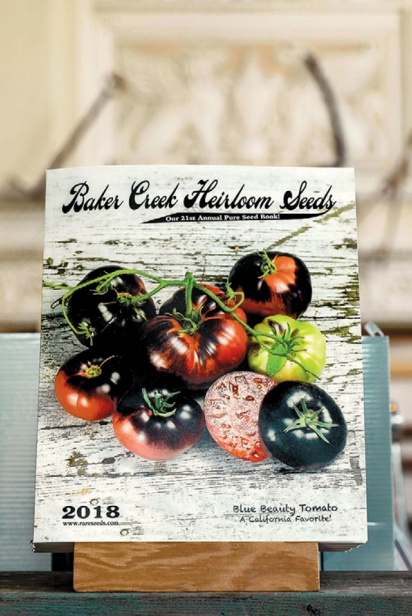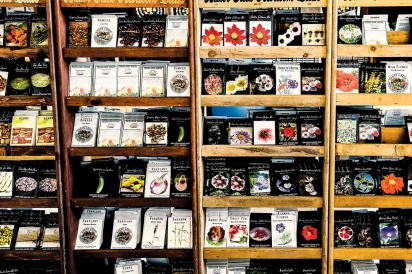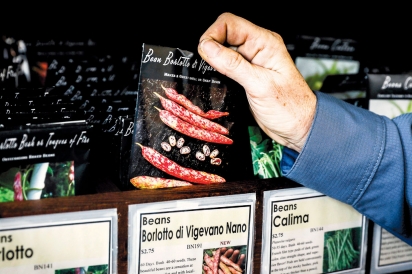Preserving Food Sovereignty, One Heirloom Seed at a Time
BAKER CREEK SEED COMPANY AND THE PETALUMA SEED BANK
Good food comes from good seeds. Until a few decades ago, farmers were largely the custodians of their own seeds. Then the world’s population exploded and food production became an industrial endeavor. Plants, and their seeds, became commodities to be tampered with, patented and sold to the highest bidder.
Seeds are small, sometimes tiny, but control of them has huge implications. Whoever controls the seeds controls our very food supply.
Today, a handful of giant industrial chemical companies vie with each other, and conspire together, to monopolize the world’s supply of seeds.
By engineering seeds to have certain characteristics—such as quick maturation; the ability to withstand massive doses of chemical herbicides, pesticides and fertilizers; and ease of planting and harvest— these companies quite literally sell farmers around the world on the virtues of their patented seeds, enticing them to plant only these. As a result, in less than a century, a wealth of seed and plant-based food biodiversity has been lost. An infographic published in the July 2011 issue of National Geographic magazine illustrates the dramatic loss of 93% of seed varieties in the United States over a span of 80 years. One specific example of the precipitous drop in crop diversity shown on the infographic is that in 1903 farmers in the U.S. were planting roughly 500 different varieties of lettuce, but by 1983 that had been reduced to just 36. Similar significant losses are reflected throughout the food basket. (Nationalgeographic.org/media/infographic-design)
Enter Jeremiah “Jere” Gettle, who began saving seeds at age 10 after he noticed particular varieties of heirloom vegetables disappearing from the catalogs he perused. Seven years later, in 1998, he started the Baker Creek Heirloom Seeds catalog, operating the mail-order shop from his parents’ farmhouse in the Ozark Hills of Missouri.
Today, Gettle’s seed-saving mission has expanded into a thriving business headquartered in a small village he built around the farmhouse where it all began. The village includes a seed farm, retail store, trial gardens and an educational center for visitors. Off the farm, Gettle’s enterprise now includes two additional retail stores, the Comstock Ferre & Co. seed store in Wethersfield, Connecticut, and the Petaluma Seed Bank here in our area. Baker Creek is also one of the organizers of the annual National Heirloom Expo held each fall in Santa Rosa.
Gettle and his wife, Emilee, opened the Petaluma Seed Bank in June 2009, after noticing that a large percentage of their orders originated on the West Coast. Gettle’s love for historic buildings led them to locate initially in a grand old bank building in downtown Petaluma. The huge space really required more to be offered than just seeds, says Ellyn Mavalwalla, the manager of the store, who has been with the company since 2011. The store relocated this past April to a smaller space just down the block, one that allows them to focus on their true mission: selling heirloom seeds.
“Jere wanted seeds to be front and center,” Mavalwalla said. “When you walk in the door at the new location, there is no doubt you are in a seed store, and that’s what he wanted.”
Indeed, walking into the Petaluma Seed Bank is like entering a gardener’s wonderland. The walls are lined with over 1,500 varieties of heirloom seeds from over 100 countries. Everything is pure, natural and non- GMO. Baker Creek’s catalog offers even more, boasting the largest selection of heirloom vegetables, flowers and herb seeds in the United States.
Heirloom varieties are open-pollinated, meaning that, unlike hybrids, their seeds will produce plants with most of the same characteristics as the parent. Purchase them once, then save seeds from this year’s crop yourself to plant next year, if you so desire. Accordingly, sourcing heirloom seeds and then saving and replanting them ourselves keeps us connected to the history of our foodways.
According to Gettle, every heirloom seed has its own story, some being passed down through generations. The history of the particular variety of plant, the way its seeds are saved, the way the food it produces is cooked and eaten, are all just as important to our food heritage as nutrition and taste.
Gettle and his team also collaborate with growers around the world, supplying free seeds to farmers in some of the world’s poorest countries, and Baker Creek’s employees also regularly travel the world on seed-saving expeditions, bringing them back to offer to customers.
It feels only natural to compare the Gettles to John Chapman (1774- 1845), better known as Johnny Appleseed, the American pioneer nurseryman legendary for his introduction of apple trees across wide swaths of the U.S., preserving and advancing our vital food security, one seed at a time.
RareSeeds.com/Petaluma-Seed-Bank
This year’s National Heirloom Expo at the Sonoma County Event Center in Santa Rosa will be held September 11–13. TheHeirloomExpo.com


